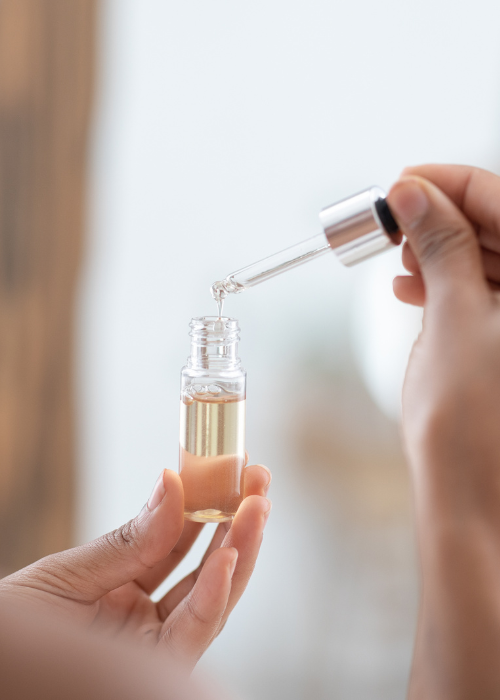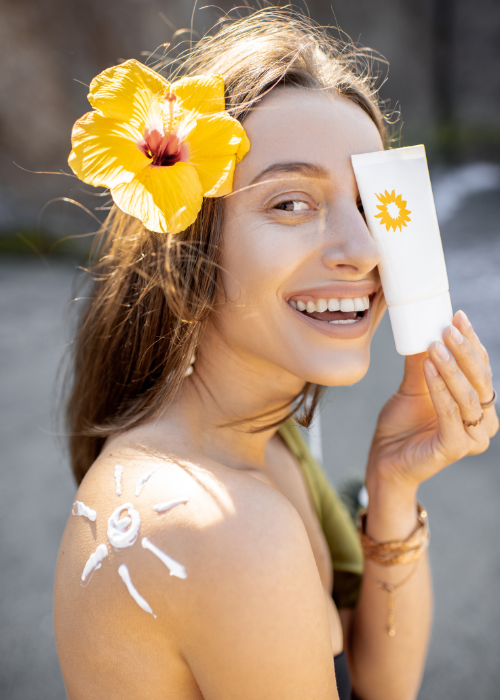Your skin can suffer greatly in the winter, and it may seem impossible to get away from it: When it’s cold and windy outdoors, your skin becomes raw and red, and when it’s hot inside, both the air and your skin lose moisture.
Fortunately, there are various approaches to addressing the root causes of dry skin and maintaining moisture and suppleness throughout the season, including some simple routine adjustments.
Continue reading for easy, dermatologist-recommended tips for radiant skin in the winter.
Tips for healthy skin in winter: Purchase a humidifier to increase moisture

Use a humidifier throughout your house or only in the areas where you spend the most time, and try to maintain a humidity level of between 30 and 50 percent. One choice is to leave it on while you sleep over night. You can get a humidity meter if you’re unsure of the humidity levels in your house.
Maintain comfortable and cool temperatures on the thermostat
Turn up the heat as soon as you reach home if you want to escape the chilly, dry air outside. However, according to the American College of Dermatology (AOCD), high core temperatures might cause your home’s air to become dryer. The AOCD advises temperatures between 68 and 75 degrees Fahrenheit as a way to avoid your skin from drying out even more.
Lower Shower and Hand-Washing Water Temperatures

When washing your hands, you should also refrain from using water that is too hot. This is particularly true if you frequently have red, scaly, and itchy hands, which the National Eczema Association describes as possible symptoms of eczema on the hands. An eczema flare-up might be brought on by dry skin that has been exposed to hot water or cold winter air.
The Centers for Disease Control and Prevention (CDC) claim that cooler water is less abrasive on the skin and appears to be just as effective at killing germs as warm water.
Choose mild, fragrance-free cleaning products
By robbing the skin of its natural oils and messing with the microbiome, bar soap can make dry skin worse. ‘For sensitive skin’, ‘dye-free’, and ‘fragrance-free’ cleansers are what you want to look for. They typically have more moisturizers such hyaluronic acid, ceramides, oils, shea butter, and oats and less drying substances like alcohol. Products marketed as “unscented” may actually include chemicals that mask aroma and irritate people.
Change Your Skincare Routine to Suit the Season

Choose oils and creams for your skincare regimen, and if toner makes you feel dry, think about layering moisturizer over it.
Apply a thicker moisturizer to your body at night, paying special attention to your arms, legs, and belly. These are the chemicals that moisturize the skin by coating it with a barrier. Look for goods that contain humectants like glycerin and hyaluronic acid. Because they allow the skin to breathe and don’t promote acne, these substances are excellent for the face.
Also, remember to moisturize the remaining parts of your body.
A moisturizing balm for your lips (such petroleum jelly or another ointment) can assist in curing dry, chapped lips and preventing them from cracking.
Frequently moisturize hands, especially after washing
After each wash, moisturize your hands. When washing dishes or performing other household chores, you should put on waterproof gloves to protect your hands. After applying moisturizer, you can help your skin absorb the lotion by putting on cotton gloves.
Even on gloomy winter days, wear sunscreen

Wearing sunscreen in the severe winter cold is just as crucial as it is in the summer, whether you’re skiing, playing in the snow, or merely crossing the parking lot to run errands.
Don’t be deceived by the dismal, gloomy winter days. Up to 80% of the sun’s damaging UV rays can pass through clouds and still cause harm, according to the Skin Cancer Foundation.
The Skin Cancer Foundation advises using broad-spectrum sunscreen to all exposed regions of your body with an SPF of 30 or higher, water resistance, and moisturizing compounds like lanolin or glycerin.
Dress appropriately, comfortably, and without irritability
Winter dryness can be made worse by several cold-weather materials. Avoid putting wool or scratchy materials on your skin directly. Dry skin may become sensitive and scratchy as a result.
Instead, dress in thin layers of supple, breathable material next to your skin (such as cotton or silk). Wear thicker, warmer sweaters after that.
Recall to eat healthfully and drink plenty of water

While you can mildly hydrate your skin from the inside out, don’t anticipate significant effects. One of the finest things you can do for your diet to prevent dry skin is to stay hydrated by consuming lots of fluids, like water. Your nutrition may also be important. Your body and skin will stay healthy if you stay away from processed meals and sugar and consume whole foods that are high in vitamins, minerals, and important fatty acids.
Dry Off With A Pat, Then Lock In Moisture
After washing your hands, dry them. Instead of massaging dry skin, blot or pat it to help it retain more moisture. Apply a thick moisturizer within a few minutes of taking a shower to prevent the water from infiltrating your skin. Do the same when drying your skin after a shower.

Itís hard to find educated people for this topic, however, you sound like you know what youíre talking about! Thanks